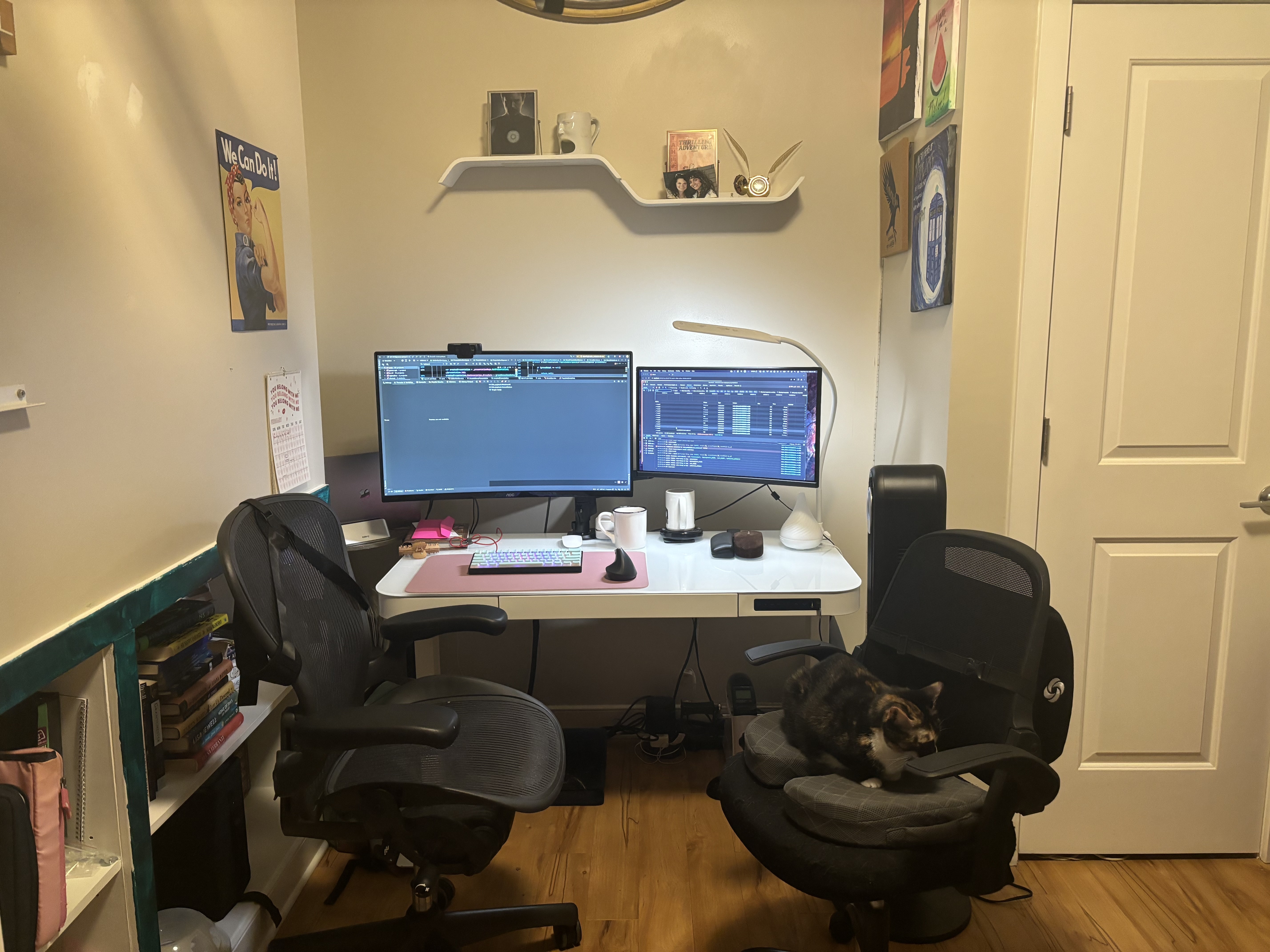Codesmith Resident Day in the Life: Full-Time Remote Immersive
Codesmith’s Full-Time Software Engineering Immersive programs prepare residents to break into the...

Samantha graduated from Codesmith’s West Coast Remote Immersive program in 2019. Here she breaks down a typical work day in her life as a Senior Software Engineer for a media non-profit organization in Washington, USA.
One thing I warn folks who are interested in making a career transition into software development is to get the idea of ‘a coder in a dark room talking to no one’ out of their head. While that may be the reality for some software devs, in my experience, software engineering requires a lot of cross-team coordination and meetings.
As an example, I kept running notes of a pretty typical day for me. I work as a Senior Software Engineer at a media non-profit organization. From what I’ve gathered, my day is similar to other devs at my organization.
9:00 AM Prep for the Day
I first check my notes from the previous day. At the end of each day, I write myself a note about where I left off regarding a particular ticket, items I need or want to get done the next day, etc. It helps reorient my brain each morning rather than spending an obscene amount of time trying to remember things before the caffeine has kicked in (yes, that is the obligatory caffeine reference. Take a shot of espresso.)
“My manager and I have bi-weekly 1:1s to sit and talk about any issues I’m running into, any questions I have, and more often than not, just connect on a personal level.”
9:15 AM 1:1 With My Manager
In this particular 1:1, we discuss the status of one of the cross-team projects I’m working on, as well as touch base about the recently ratified Collective Bargaining Unit my Union just ratified.
10:00 AM Project Meeting
However, rolling out this feature will require training on how to use the new feature as well as messaging to explain why it’s critical. As the lead developer for the project, it may seem strange that I was part of this meeting. However, as the meeting had folks present who would be instrumental in the training, I found it important to be there to make sure that we have everything in place on our side to make the rollout as smooth as possible.
From this meeting, I realized that it could be beneficial to our users to have an additional hint above an input field to guide them a bit more. Without attending this meeting, I don’t know that the idea would have crossed my mind.
10:30 AM Address Pull Request (PR) Notes/Slack Chatting

Samantha's work setup, where much of the day is spent battling with the cat for use of the keyboard
11:00 AM Team Standup
11:15 AM Writing Code, finally!
I spend the next couple of hours addressing these bug tickets that one of our Test Engineers opened. He and I Slack back and forth about the nature of the bug, and I get some clarification on how to recreate the issue. I wrap these up and submit PRs.
1:15 PM LUNCH!
"Being a successful engineer requires being able to technically communicate with other developers, as well as working with folks throughout your organization who may not have the same tech savviness as others."
2:30 PM Cross-Team Meeting
"As a developer, you can’t just assume that your day will solely be writing code."
3:30 PM Create Tickets
4:00 PM. Start Working On the New Tickets
4:50 PM Write Notes/Start Wrapping Up
As you can see, on this day in particular, I didn’t write much code. There are definitely days when I have only one meeting and can focus more on writing code, but I would say there was nothing about today that felt exceptional or overly scheduled.
All this to say, as a developer, you can’t just assume that your day will solely be writing code.
Being a successful engineer requires being able to technically communicate with other developers, as well as working with folks throughout your organization who may not have the same tech savviness as others. For me, I enjoy this and appreciate getting to work with others.
Codesmith’s Full-Time Software Engineering Immersive programs prepare residents to break into the...
We chatted with Codesmith alum Irine about her experience attending the full-time, remote Software...
AfroTech, the world’s biggest conference for Black people in tech, brought 2023 to a close on a...